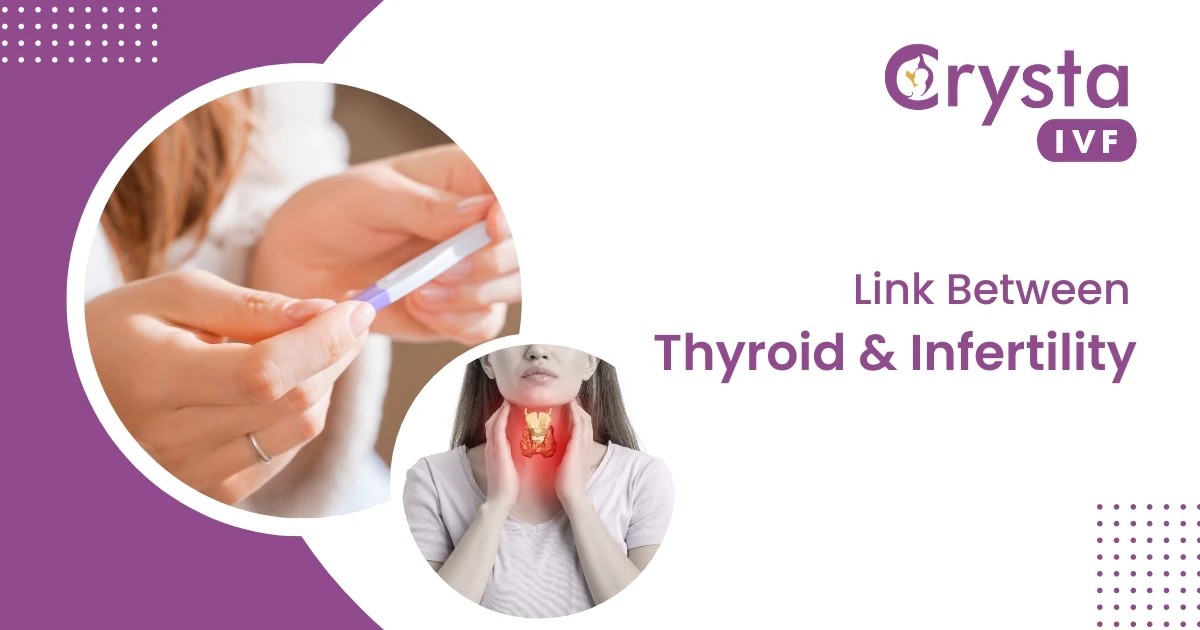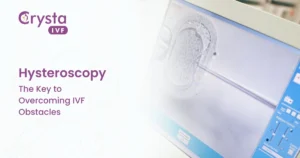
Medically Reviewed By
Dr. Nidhi Sehrawet

World Thyroid Day is observed annually on May 25 to increase public awareness of this vital bodily gland.
According to the thyroid association, the theme is “It’s not you. Your thyroid is to blame.”
The subject also emphasizes thyroid abnormalities and how to treat them, avoid complications, and prevent them from becoming serious health issues by taking action and seeing a doctor.
The phrase “thyroid disease” refers to a broad range of illnesses that trouble the thyroid gland and prevent it from producing enough hormones.
Medical professionals, clinics, and health organizations hold lectures and training courses to commemorate World Thyroid Day. The goal is to spread knowledge about thyroid disorders, their causes, and the available treatments to as many individuals as possible.
Additionally, World Thyroid Day educates people about the thyroid’s importance for overall health and how it may impact fertility.
Hence, in this article, we will do a comprehensive analysis and discuss in detail thyroid problems and their impact on fertility, and answer your question, “Can Thyroid problem affect fertility?”
Thyroid gland and thyroid disorder: Do you know them?
The thyroid gland is a butterfly-shaped organ in the front of your neck that works to produce hormones that regulate your body’s metabolism and affect vital functions.
While fertility determines a couple’s ability to conceive and deliver a healthy baby, The relationship between your thyroid health and fertility is utterly delicate and pivotal.
Sometimes, it is considered a complex part of conception. So, to monitor it closely, let’s examine thyroid disorders.
Thyroid disorders refer to a group of disorders that cause unbalanced functioning of the thyroid gland, resulting in excess production (hyperthyroidism) or less production than expected (hypothyroidism) of thyroid hormones, triiodothyronine (T3) and thyroxine (T4).
The most common disorder that can affect you is the autoimmune condition (Hashimoto’s thyroiditis) that is predominant in women. Graves’ disease, another autoimmune condition, is identified as the most common cause of hyperthyroidism.
Thyroid disorders and female fertility: Understand the connection
Hypothyroidism and hyperthyroidism can both negatively impact your fertility and make pregnancy with thyroid disease almost impossible. The presence of autoimmune antibodies, whether you have hyperthyroidism or hypothyroidism, can also have a major impact on your fertility.
As researchers explain, “abnormal TSH levels can interfere with ovulation,” and “when you are diagnosed with any type of thyroid disorder, you will observe that your ovulation cycle has been disturbed.”
The thyroid hormones stimulate your progesterone levels. If the thyroid disorder is uncontrolled, you might face difficulty getting pregnant because there will be no implantation.
After all, the thyroid affects fertility directly without any loop in between. Due to this, you could also experience an early miscarriage.
Signs of imbalanced progesterone levels
The most common signs of imbalanced progesterone levels that raise the question, “Can a woman with thyroid problems get pregnant?” are:
- Lighter or heavier bleeding than expected
- A longer or shorter menstrual cycle than usual
- Abnormally longer or shorter windows for bleeding
However, you should know that fertility is not a female-oriented issue caused by the thyroid. Thyroid disorders in men can also affect a couple’s fertility, as dysregulated thyroid function can lower the sperm count and damage its quality and motility, making it almost unfeasible to fertilize an egg for implantation.
Now, let’s take a look at how particularly hypothyroidism and fertility are linked together:
Hypothyroidism and fertility
Too little thyroid hormone or hypothyroidism can impact your fertility in many ways:
- Increased risk of miscarriage
- Higher risk of premature birth
- Interference with the ovaries’ ability to release an egg (ovulation)
- Disruption of the menstrual cycle
Hypothyroidism is more common among women than men and results in a positive answer to the common question, “Can a woman with thyroid problems get pregnant?” However, a lack of knowledge and being undiagnosed leads to numerous health complications associated with pregnancy. So, let’s monitor the common hypothyroidism signs before it gets too late.
- Fatigue
- Muscle soreness
- Weight gain
- Forgetfulness
- Intolerance to cold
- Dry skin and hair
- Frequent and heavy menstrual cycle
Now what about hyperthyroidism? Does it also affect your fertility and make you deprive yourself of planning for a healthy baby? Read on to learn more.
Hyperthyroidism
The autoimmune condition Graves’ disease is the most common cause of hyperthyroidism. Excess thyroid hormone caused by hyperthyroidism can take a dig at your fertility by:
- Causes a reduction in sperm count
- Disarrangement of the menstrual cycle
- Increases the risk of premature birth.
- reduces the risk of early-term miscarriage
If you are diagnosed with hyperthyroidism, you are usually kept on the lowest effective medication dose during pregnancy. As these medications can cross the placenta (an organ that develops in the uterus during pregnancy). Moreover, if you have a history of Graves’ disease, it is better to consult with your healthcare provider and take preventive actions for your health.
Besides hypothyroidism and hyperthyroidism, there are other factors too that can raise the same question over and over again: “Can a woman with thyroid problems get pregnant or not?”. So, let’s understand these other factors.
Autoimmunity, inflammation, and fertility: what else to know?
Autoimmunity can affect your fertility negatively, even when TSH levels are examined within the normal range. The immune imbalance indicated by thyroid antibodies can impact your fertility by:
- Increasing the risk of miscarriage
- Causing difficulty with implantation
- Causing complications with the egg fertilization process
However, healthcare experts do not always agree on whether or not your antibody count is an important factor in diagnosing the presence of thyroid antibodies. Still, it is significant to monitor your antibody count to prevent severe health issues at the earliest possible time.
Because both the presence of antibodies and thyroid hormone levels play an important role in fertility, it is important to work with your doctor to achieve a stable balance based on your individual needs.
As the presence of antibodies and thyroid hormone levels plays an essential role in fertility, it is best to work closely with your doctor to determine what can be done to combat fertility problems and how you can plan for a baby effectively.
What can be done to plan for a baby while dealing with thyroid issues?
Infertility is not imperfect!
First and foremost, consider that infertility is not imperfect! It can affect anyone, irrespective of gender. In some cases, certain health issues can lead to fertility challenges, such as thyroid problems, and make you incapable of conceiving a baby. However, you do not have to lose hope yet.
With the help of in-vitro fertilization, you can plan for a healthy baby and overcome all your fertility dilemmas. Thyroid and IVF can be an undesirable combination, but when you have the best IVF experts from Crysta IVF to guide you on how effectively you can conceive with the help of IVF, there is nothing left to be worried about.
However, if you are anxious about the IVF Pregnancy Cost in Delhi, do not stress. At Crysta IVF, you get the premium experience of a personalized approach and numerous fertility treatments under one roof. So, without getting cautious, take a step forward to live your parenthood journey today.




